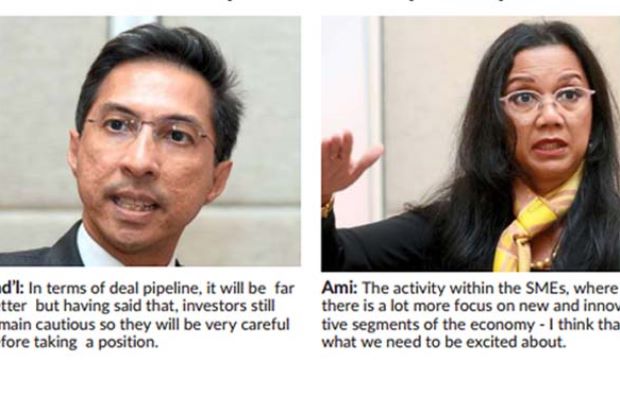Investment banking to pick up steam
KUALA LUMPUR: After a generally tepid year in 2018, there’s been improvement in the investment banking (IB) scene so far, but caution continues to prevail among investors.
Maybank Investment Bank Bhd (Maybank IB) CEO Fad’l Mohamed said this adding that the bank, the largest in the country, had already seen a healthier pipeline of deals in the first three months of this year, compared to the year earlier.
“In 2018, we saw a lot of adjustments, people were looking for clarity, this year we are seeing a lot of value come out.
“In terms of deal pipeline, it will be far better but having said that, investors still remain cautious so they will be very careful before taking a position,” he told Starbiz in an interview.
Although there were 22 listings in total, capital raised on Bursa Malaysia during the year was only RM709mil, of which two were Main Market issuances.
This value was even less than the RM1bil raised in 2016, which at that time – based on that amount – was already seen as a collapse, no thanks to a soft overall global market.
In 2017, things had improved and total capital raised via IPOs stood at RM7.4bil from 13 listings of which among the larger ones were Eco World International Bhd and Lotte Chemical Titan Holding Bhd.
This year, among the more sizeable IPOs that are expected to take place are that of QSR Brands (M) Holdings Bhd, the operator of the Kentucky Fried Chicken (KFC) and Pizza Hut outlets countrywide, and poultry producer Leong Hup International.
Notably, both are re-listings, having gone public before they were taken private more than five years ago.
Fad’l noted that within the domestic market, companies were “bulking up” this year, starting to look at optimising their balance sheets and positioning themselves to either acquire assets or be more focused on their areas of strength.
In the merger and acquisition (M&A) space, Fad’l said he expects a potentially “more vibrant” market, citing opportunities which could come from certain government-linked investment companies which have indicated that they would undergo corporate exercises.
Within the debt market used to finance mega infrastructure projects, he said he expected the segment to register levels “not very far” from last year which saw total issuance coming in at RM109bil.
Of this, government-guaranteed papers made up 29%.
“Although a lot of infrastructure projects have been deferred, at the end of the day there are still a lot of ongoing jobs such as the MRT and the water-related projects – whatever that needs to be done is still being done.”
He admits that the cancellation and deferment of a few key infrastructure projects has “in a way” impacted the investment bank.
“But I think the market remains vibrant and there is still a lot of demand for debt-raising,”
Recall, some of the cancelled or deferred projects include the The East Coast Rail Link or ECRL, the MRT Circle line (Line 3), the Trans Sabah Gas Pipeline, the KL-Singapore High Speed Rail and the Sistem Kawalan Imigresen Nasional (SKIN).
All these were postponed or axed post GE14, due largely to costs issues.
Meanwhile, Maybank Kim Eng Group CEO Ami Moris taking on a bigger-picture view, said she believes that the Malaysian economy is in “good stead.”
“The key word to describe it is resilient. Resilient meaning it is very well diversified and there isn’t any one particular sector that really dominates in terms of the sectoral composition of Bursa as a whole marketplace,” she said.
She pointed out the growing significance of small and medium-sized enterprises (SMEs) that according to her, are perhaps not well captured within the universe of public markets.
“The activity within the SMEs, where there is a lot more focus on new and innovative segments of the economy – I think that’s what we need to be excited about.
“Additionally, some of these companies have actually outgrown the definition of SMEs and now form about 50% of the Malaysian economy, she added.
“That is fairly astounding.”
Ami also said that execution remained something that people were watching and tracking.
“But as what (Finance Minister) Lim Guan Eng said, Malaysia (its fiscal position) will be put back on track within three years.
“It’s a three-year thing so it will be fairly hasty to judge on a monthly or yearly basis… he has said very clearly that the Government has set the milestone within a 3-year period, I think that’s highly realistic.”
Lim had also said last month at the Invest Malaysia conference that the country will return to its “Asian tiger” status in three years.
In February, he said the country’s debt was still at the trillion ringgit level as at the end of 2018.
Source : TheStar

